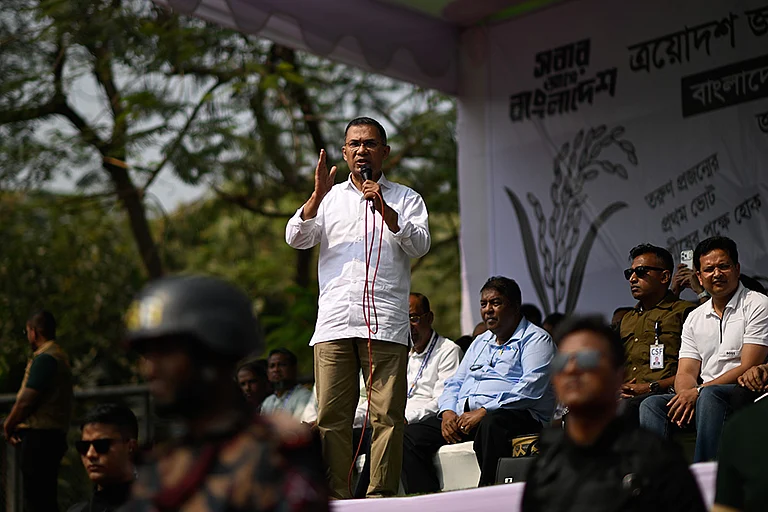In the light of the huge shortfall in GST revenue collections, the Central government recently gave the states the option to borrow either Rs 97,000 crore from a special window facilitated by the government or borrow the entire shortfall of Rs 2.35 lakh crore from the market. In conversation with Outlook’s Lola Nayar, Kerala Finance Minister Dr Thomas Isaac says the central government’s two options have ‘no rationale’. Excerpts:
The states have been given two choices to bridge the gap in GST through borrowing. What has Kerala decided?
Our choice is that the central government borrows the money and also makes the cess fund available to the GST Council. In case they are afraid of the fiscal deficit or the interest rate going up, they should monetise this debt. Whether the Centre borrows or the states borrow, macro economical impact would be more on the states, even of fiscal deficit. The Centre should look more at the combined impact of Centre and states' fiscal deficit. When the states borrow there are three problems: the interest rates are higher, the FRBM debt ceiling has to be amended, and the Centre may not give enough room for neutralising the entire compensation. The third problem has a practical aspect as the compensations to the different states varies considerably, not to say some states with surplus revenue but even they would have gone into the red. On the other hand, there are states which are due as much as 40 per cent compensation like Puducherry, for example.
The Centre says it will increase states’ borrowing limit by 0.5 per cent. While in some states this will not be required, but in others much more will be required. This will be known only by the end of the year while money has to be given every second month, so the Centre’s stance is impractical. It shows that the Centre wants to dilly-dally on transfer of funds to the states. A more simple and elegant solution would be that the Centre should borrow instead of making states do it on their own. This is more so when there is a surplus in GST compensation fund which is part of the Consolidated Fund of India. When there is undistributed IGST, it is part of the consolidated fund. When there is a shortfall in revenue, why should it not be utilised as part of the Consolidate Fund of India? The central government should be graceful enough to co-ordinate with the states and strive to get along. We are not foreign countries but part of the same country.
Would borrowing by the states put pressure on interest rates?
Our stance is clear -- there is no rationale to compel the states to borrow. It is very difficult practically for the above mentioned reasons. Borrowings by states will definitely impact interest rates. Kerala had to do open market borrowing at 9 per cent, that is because we borrowed big amounts. When you borrow small amounts, the interest rates can be in the range of 6.5 per cent, but it goes up bigger the amounts. We borrowed Rs. 6000 crore in April to help people out during pandemic. Since then we have become wiser and borrow Rs 500 crore every fortnight.
What is the current shortfall in revenue Kerala is facing?
Our shortfall in revenue in the last four months is about Rs 7000 crore. Our revenue collection this year is likely to be only 60-70 per cent of the normal collection.
When do you foresee a pick-up in economic activities and revenues this year with tourism and many other sectors having been hit?
Our assessment is that Kerala's economy is likely to contract by 10 per cent this year. The Monsoon has been good so far with only a landslide but no floods, which was a major saving grace. We are now looking at the agriculture sector to revive the economy.
Are you in consultation with the other states on the way forward? Are they supportive of Kerala’s stance?
On Monday, I hope to have some systematic consultations with other states. So far, they are very firm that the Centre should borrow. It is unfortunate that the central government is no longer accommodative to state pressures as it was earlier. The GST Council has started to become divided with faultlines, which is unfortunate as the spirit of give and take is slowly disappearing. The Centre is forcing the states to take particular ideological positions.
There have been reports that some of the states not in line with the central government’s ideology were not getting their due share in the GST funds. Is this charge true?
No, it is not true. In the case of discretionary transfers, there may be some issues but where normal transfers are concerned, it is being done as per the formula of the finance commission.





















.jpg?w=200&auto=format%2Ccompress&fit=max)




